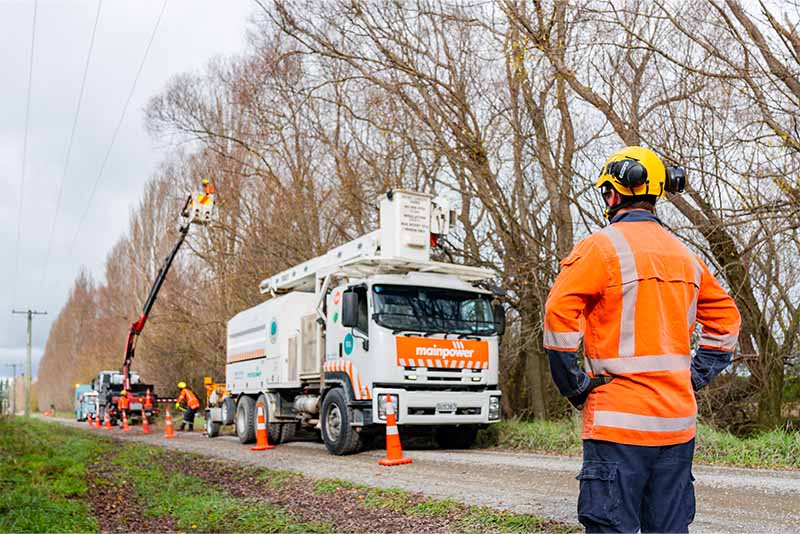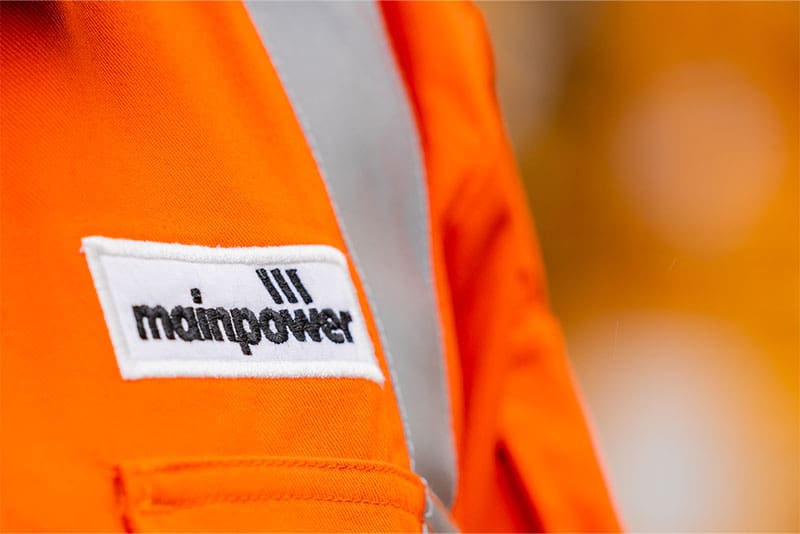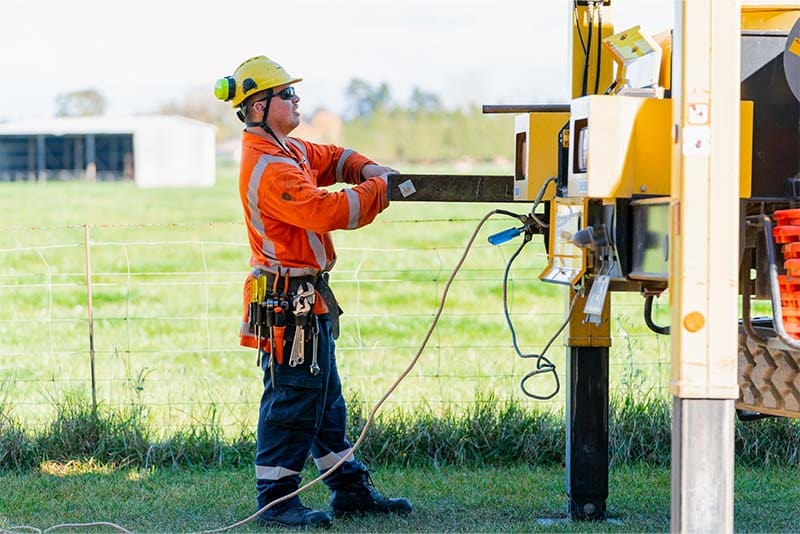We use electricity every day, so it’s important to know how to stay safe around it.
By following these guidelines, you can reduce the risk of electrical accidents and keep your home safe.
Remember, in an emergency, call 111. If in doubt, give MainPower a call on 0800 30 90 80 for advice.
We’re here to help. Get in touch if you need help. Or, check out our FAQs.
Home electricity safety tips

- Switch off before unplugging: Always turn off an appliance before unplugging it from the outlet to avoid electrical shocks.
- Care for your cords and boards: Regularly inspect cords and boards for wear and tear, including fraying or brittleness, and replace them if damaged to prevent electrical fires or shocks.
- Treat tingles seriously: If you feel a tingling sensation when touching an appliance, switch it off immediately and unplug it, as this could indicate an electrical fault.
- Keep liquids away from electricity: Never use portable appliances like radios, heaters, or hairdryers near water, and avoid spraying cleaners directly on switches or sockets to prevent electric shocks.
- Use power boards with surge protectors: Power boards with built-in surge protectors can prevent damage to your appliances from power surges.
- Use the correct wattage bulbs: Ensure you use light bulbs that match the recommended wattage for your lamps and fixtures to avoid overheating and potential fire hazards.

Electricity safety warnings
- Don’t overload power points: Avoid plugging multiple adaptors or high-wattage appliances into a single outlet to prevent overheating and electrical fires.
- Avoid metal objects in toasters: Never use metal objects to remove items from toasters, as this can cause electric shocks.
- Do not pull on cords: Always unplug appliances by gripping the plug, not the cord, to prevent damage to the cord and reduce the risk of electrical shock.

Warning signs of electrical problems
If you notice any of these warning signs, contact your landlord or a licensed electrician immediately.
- Tingling sensations when touching a plug or switch
- A faint burning smell from an appliance
- Warm or discoloured outlet plates
- Sparking outlets
- Flickering or dimming lights
- Frequent tripping of circuit breakers or blown fuses
Remember: Always treat all electrical equipment as live to ensure your safety.

Safety for kids
It’s important for children to learn about electrical safety from an early age. Teach your children to stay away from power lines and trees that are close to them. Ensure they can recognise standard electrical warning signs and understand the importance of keeping their distance.
Energy Explorers is an activity book created by MainPower to help kids learn about electricity. It is packed with fun puzzles, engaging activities, and colourful illustrations that make learning about energy exciting and fun.
Check out our Energy Explorers activity book here.
Get in touch with us if you would like a printed copy.
Outdoor electrical safety
Take extra precautions around electricity when working or playing outdoors. Be aware of overhead power lines and underground cables, especially when using ladders, pruning trees, or digging. Before starting any work that could involve power lines, such as painting, trimming trees, or replacing roofing, contact MainPower to discuss safety measures or disconnecting the power.
Never touch overhead power lines, underground cables, or any bare conductors connecting them to your home, as this could be fatal.
Outdoor safety tips
- Avoid building or storing materials under power lines: This reduces clearance height and could be dangerous, especially because children may try to climb on them.
- Check clearance when renovating: Make sure house extensions or renovations do not interfere with power lines.
- Handle ladders with care: When using metal ladders, keep them horizontal, especially when near overhead power lines. Avoid contact with power lines, as touching a ladder that is in contact with a power line can cause electrocution.
- Inspect for overhead lines before starting roof work: If any lines are overhead, arrange for them to be isolated or protected.
- Teach children about power line safety: Make sure they understand never to climb power poles, pylons, or trees near wires.
- Report fallen power lines immediately. Treat all fallen lines as live; do not touch them, and tell MainPower right away.
- In some cases property owners are responsible for maintaining and repairing electrical lines and equipment. Read more about responsibilities in the fact sheet below.
DIY electrical work
While DIY electrical work might seem like a cost-effective solution, it can be dangerous if not done correctly. Homeowners are allowed to carry out certain electrical tasks, provided they comply with national standards. However, it’s safer to hire a licensed electrician to prevent risks such as electric shock or fire.

We’re here to help
If you need some assistance or advice, please get in touch with our team.